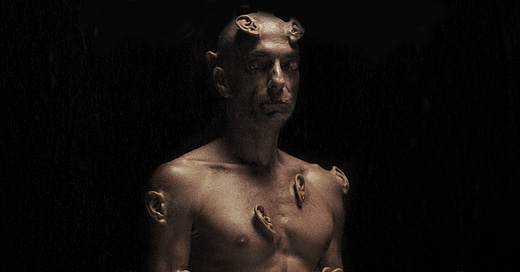Two movies came into my life in the last 4 days… Alex Garland’s Men and David Cronenberg’s Crimes of the Future. Both are from filmmakers I admire and follow closely. Both have been shocking critics with their graphic extremes. One is being distributed by A24 and the other by Neon, the current cutting edge distributors in mainstream but challenging indies.
Both, from my view, are much less complex, in terms of their macro arguments, than they seem. In this way, they both bring to mind Kubrick’s Eyes Wide Shut, a movie that boils down to 2 nights of dreams of a man trying to decide whether or not to cheat on his wife with whom he no longer connects.
In Men, Garland (writer and director) builds a film around the emotional trauma of a woman, Harper (played by Jessie Buckley), whose husband commits suicide when she is leaving the relationship. The bulk of the movie takes place in the beatific setting of a rented cottage in the country. There, she encounters 8 different men - landlord, naked…
Keep reading with a 7-day free trial
Subscribe to The Hot Button by David Poland to keep reading this post and get 7 days of free access to the full post archives.




